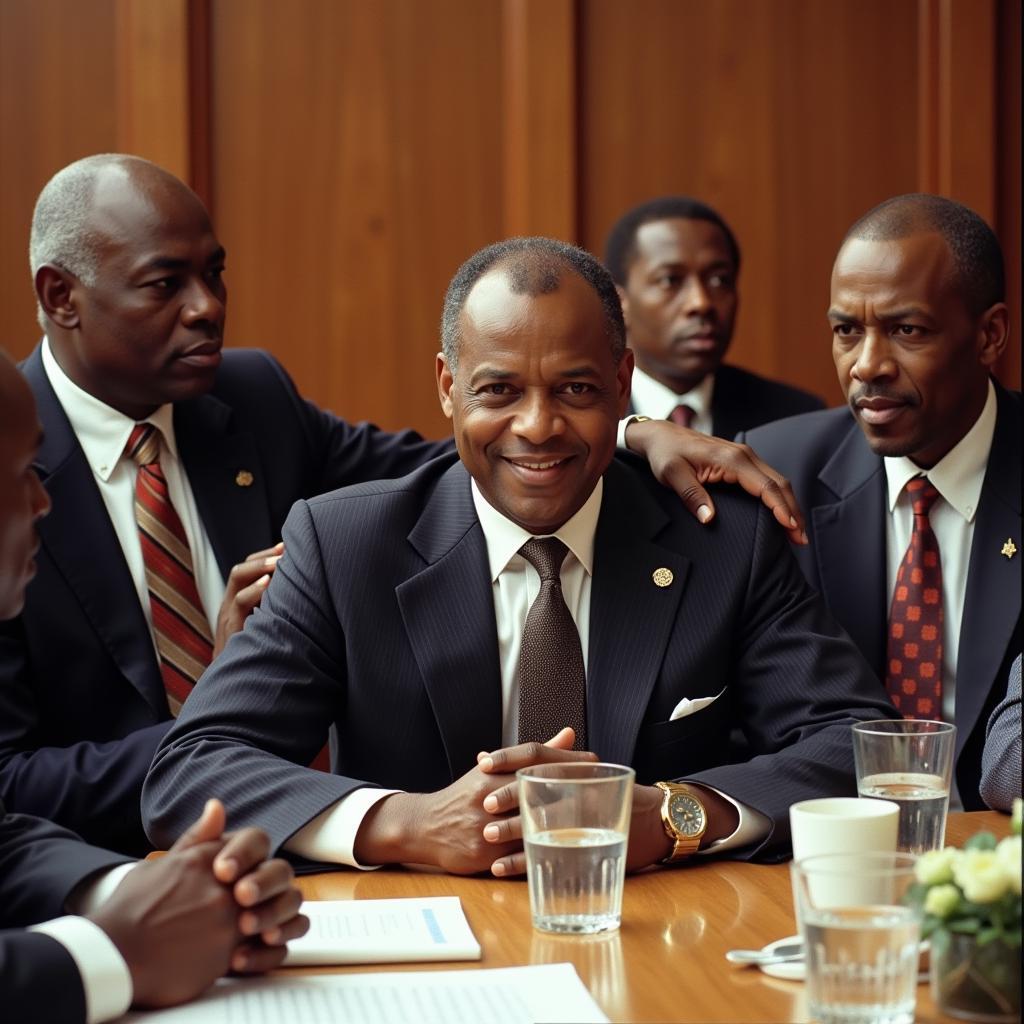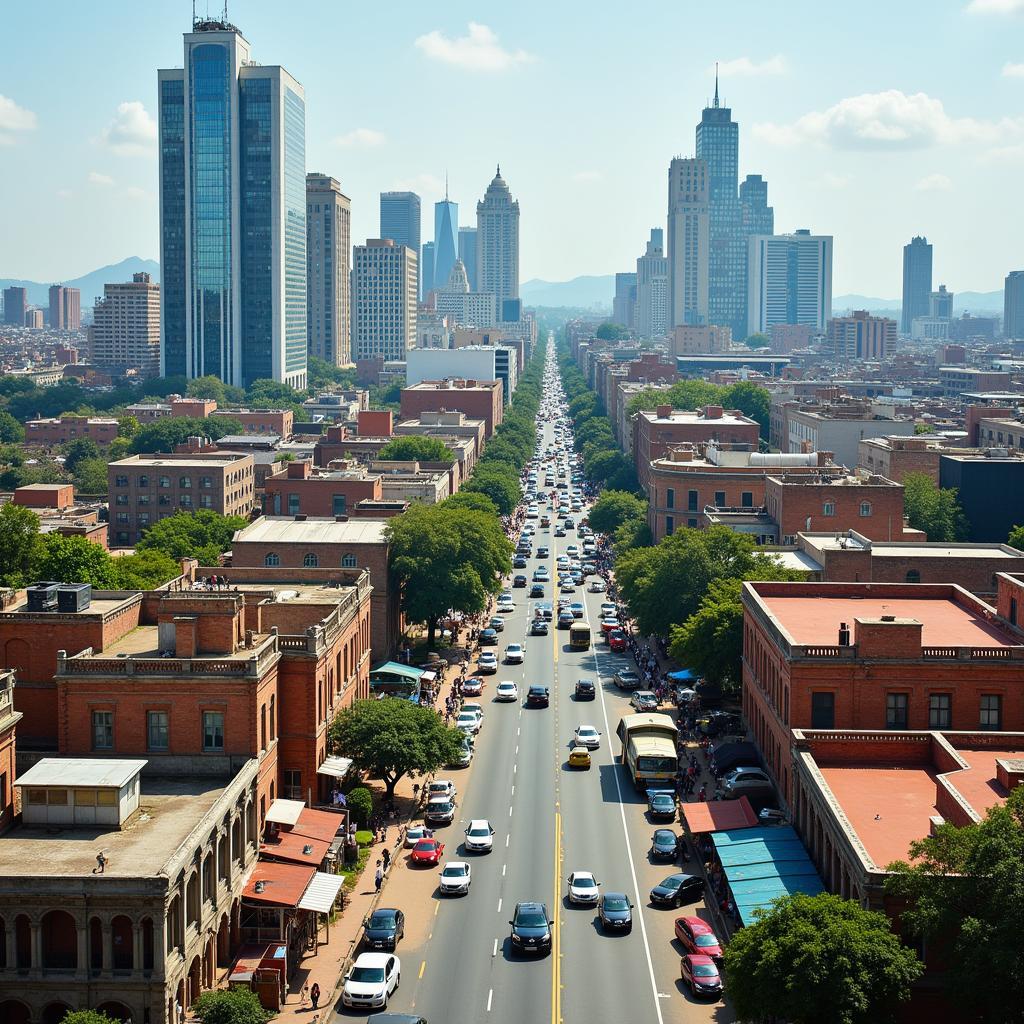African Independence After WW2: A Continent Transformed
The winds of change swept across Africa after World War II, ushering in an era of unprecedented transformation marked by the pursuit of independence from colonial rule. African Independence After Ww2 was a complex process, shaped by both internal and external factors, with varying paths and outcomes across the continent.
The Seeds of Change: Pre-War Influences and Post-War Realities
Several factors contributed to the rise of independence movements. The war itself weakened European powers, both economically and politically, making it harder for them to maintain their colonial empires. Moreover, the war exposed the hypocrisy of fighting for freedom and democracy abroad while denying it to colonized peoples. The Atlantic Charter, signed in 1941, although initially not intended to apply to colonies, provided a powerful ideological weapon for independence movements. It proclaimed the right of all peoples to choose the form of government under which they will live. This, coupled with the rise of Pan-Africanism, an intellectual and political movement advocating for the unity and liberation of all Africans, further fueled the desire for self-determination.
The Rise of Nationalism and the Struggle for Self-Determination
Across the continent, nationalist movements gained momentum. From Ghana to Algeria, leaders emerged who articulated the aspirations of their people and challenged the legitimacy of colonial rule. These movements employed diverse strategies, ranging from peaceful protests and civil disobedience to armed struggle. The struggle for African independence after WW2 was not uniform. Some countries, like Ghana, achieved independence relatively peacefully through negotiations, while others, like Algeria, endured protracted and violent conflicts.
The influence of the Cold War also played a significant role. Both the United States and the Soviet Union sought to gain influence in newly independent African nations, offering aid and support, often with strings attached. This sometimes complicated the process of nation-building and contributed to instability.
Challenges of Nation-Building in Post-Colonial Africa
The achievement of independence was only the first step. Newly independent African nations faced numerous challenges, including building stable political systems, fostering economic development, and addressing social inequalities inherited from the colonial era. The arbitrary borders drawn by colonial powers often encompassed diverse ethnic and linguistic groups, leading to internal conflicts and struggles for power.
What were the economic challenges faced by newly independent African nations?
Many African economies were heavily reliant on the export of raw materials, a legacy of colonial exploitation, which made them vulnerable to fluctuations in global commodity prices. The lack of diversified economies and skilled labor hampered development.
How did colonial legacies affect post-independence politics?
The lack of democratic institutions and experience with self-governance made it difficult to establish stable political systems. In some cases, this led to authoritarian rule and military coups.
 Post-Independence African Leaders Meeting
Post-Independence African Leaders Meeting
The Legacy of Independence: A Continent in Progress
Despite the challenges, African independence after WW2 marked a turning point in the continent’s history. It ushered in an era of self-determination and paved the way for significant progress in areas such as education, healthcare, and infrastructure development. The struggle for independence also inspired liberation movements around the world.
What is the lasting impact of the independence movements?
The independence movements instilled a sense of pride and agency among African peoples, empowering them to shape their own destinies. It also led to the creation of the Organization of African Unity (OAU), now the African Union, a continental organization dedicated to promoting unity and cooperation among African states.
 Modern African Cityscape
Modern African Cityscape
African independence after WW2 was a complex and multifaceted process, with both triumphs and setbacks. While challenges remain, the legacy of independence continues to inspire hope and progress across the continent.
Conclusion
African independence after WW2 represents a pivotal moment in world history, transforming the political landscape of the continent and inspiring movements for self-determination globally. While the journey post-independence has been fraught with challenges, the spirit of resilience and the ongoing pursuit of progress continue to shape the future of Africa.
FAQ
- What year did most African countries gain independence? The majority of African countries gained independence in the 1950s and 1960s.
- What was the role of Pan-Africanism in the independence movements? Pan-Africanism fostered a sense of unity and shared purpose among Africans, providing an ideological framework for the independence movements.
- What were some of the major challenges faced by newly independent African nations? Challenges included building stable political systems, fostering economic development, and addressing social inequalities.
- How did the Cold War impact post-colonial Africa? The Cold War led to superpower rivalry in Africa, with both the US and USSR vying for influence, sometimes exacerbating existing conflicts.
- What is the African Union? The African Union is a continental organization that succeeded the OAU, promoting unity and cooperation among African states.
- How did African independence movements influence other liberation movements? African independence movements served as an inspiration for other struggles against colonial rule and oppression around the world.
- What are some key figures in the African independence movements? Key figures include Kwame Nkrumah, Jomo Kenyatta, Nelson Mandela, and Julius Nyerere, among many others.
You might also be interested in reading more about specific independence movements, the impact of colonialism, or the current state of affairs in various African countries.
When you need assistance, please contact us: Phone: +255768904061, Email: [email protected] Or visit us at: Mbarali DC Mawindi, Kangaga, Tanzania. We have a 24/7 customer service team.
